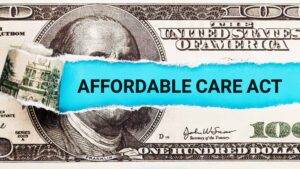
Looking for clever Valentines for accountants? Download our free printable designs and explore Valentine’s Day
3 min read
EXTENDED UNTIL MONDAY – Celebrate Mardi Gras with up to 50% off our New Orleans conference

On November 5, 2025, the Treasury Department and IRS announced penalty relief from One, Big, Beautiful Bill Act’s (OBBBA) reporting requirements for deductions on tips and overtime. Employers and payors now have breathing room to properly comply with the OBBBA, but only for the 2025 tax year.
The OBBBA created two new above-the-line deductions available for itemizing and non-itemizing taxpayers through 2025 to 2028.
Employees and self-employed individuals in occupations that customarily and regularly received tips (as of December 31, 2024) can deduct cash and charged tips up to $25,000 annually. The deduction phases out for modified adjusted gross income over $150,000 ($300,000 for joint filers). Critically, employees whose employer operates a Specified Service Trade or Business under section 199A are ineligible, as are self-employed individuals in SSTBs.
Individuals can deduct overtime compensation that exceeds their regular rate of pay (the premium portion required by FLSA) up to $12,500 annually ($25,000 for joint filers). The same income phaseout thresholds apply. Both married taxpayers must file jointly to claim either deduction.
The deductions introduced by the OBBBA create new information reporting requirements for employers and payors. Information returns—forms like W-2s, 1099-MISC, 1099-NEC, and 1099-K filed with the IRS or SSA—must now include additional details. For tips, employers and payors must separately report the amount of cash tips and provide the occupation code of the tip recipient. For overtime, they must separately report the total amount of qualified overtime compensation.
The IRS recognizes that many employers currently lack the infrastructure to capture and report this granular data. Additionally, the IRS has announced that Forms W-2 and 1099 for tax year 2025 will not be updated to accommodate these OBBBA-related changes. Therefore, the IRS will treat 2025 as a transition year. Employers can report tips and overtime using their existing procedures without facing penalties for not separately identifying these amounts or providing occupation codes.
For tax year 2025, employers and payors won’t face penalties under sections 6721 or 6722 for failing to provide separate accounting of cash tips, occupation codes of tip recipients, or separately reported qualified overtime compensation. This relief applies to returns filed under sections 6041, 6041A, 6050W, and 6051.
The relief is carefully structured to apply only when businesses otherwise file complete and correct returns or statements. Cash tips and overtime pay must still be included in the total compensation amounts reported on information returns—the relief simply excuses the requirement to separately identify and break out these specific components from the aggregate totals.
For practitioners advising hospitality, food service, healthcare, and other clients with tipped or overtime employees, this relief creates both immediate breathing room and planning imperatives.
Immediate Actions: Help clients understand they won’t face 2025 penalties but strongly encourage voluntary compliance, if possible. The IRS is encouraging employers to provide occupation codes and separate accountings of tips and overtime to employees. For qualified overtime compensation, employers can include this information in Box 14 of Form W-2. For both tips and overtime information, employers can use online portals, additional written statements, or other secure methods. Employees who receive this information will be better positioned to claim their deductions.
System development: Encourage clients for 2025 to implement tracking systems for separately capturing cash tips by employee, recording occupation codes, and identifying qualified overtime compensation.
For clients in tipped industries, determine whether the business qualifies as an SSTB, as this affects employee eligibility.
Client Education: Many clients may not understand the scope of changes under the OBBBA. Help them recognize that while 2025 offers penalty relief. Their underlying reporting obligations still exist. Clients who begin voluntarily complying now will have a smoother transition when full enforcement begins in 2026.
This transitional period is limited to tax year 2025. The IRS will expect full compliance for tax year 2026, and penalties will apply for failures to separately report the required information. Practitioners should start developing a compliance roadmap for clients now to mitigate headaches in the coming tax year.
For more information on IRS updates regarding the rules and reporting requirements for the 2025 tax year, please see the following from the IRS:






Subscribe to our news, analysis, and updates to receive 10% off your first purchase of an on-demand digital CPE course.